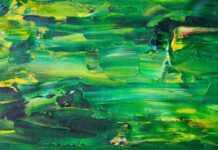Translated from the Portuguese by Calvin Olsen
You never miss Siena
The
train materialized on binario 3
the moment the ragazza served a cappuccino
on that shabby counter in the
old Empoli station. You could hear it roar
across the impatient metal tracks as we left in a hurry
down to the sottopassaggio worried about missing
the connection to Siena. But
you never miss Siena. Why
then a poem if not to witness
each
minute
lengthening/expanding
until Campo comes into view? Who
could possibly care that this one was bound for Florence –
the flavor of the cappuccino delayed until the Palio
where ragazza and regazzi scatter
over the cobblestones (their
skin bronzed by the triumph of summer)
the ochre the
sepia scorched on the medieval facades
senselessness vanquished by the
purest of sights.
Nunca se perde Siena
O
comboio surgiu do nada sobre o binario 3
no instante em que a ragazza servia um cappuccino
naquele balcãozito manhoso da
velha estação de Empoli. Podia ouvi-lo rugir
num metal impaciente quando saímos na pressa
de descer ao sottopassaggio na ânsia de não perder
a ligação a Siena. Mas
nunca se perde Siena. Para quê
então um poema senão para testemunhar
cada
minuto
crescendo
até à visão do Campo? A
quem poderá interessar que esse era para Firenza –
o sabor do cappuccino adiado para o Pálio
onde ragazza e regazzi se espalham
pelo empedrado (a
pele dos corpos tisnada pelo triunfo do Verão)
o ocre o
sépia crestados nas fachadas medievas
a desrazão derrotada ante a
mais pura visão.
In black and white
“How much is History worth on the poetry market?”
All the images of that day are scumbled
In our memory (soldiers in black and white bursting
into the train ordering everybody off
shouting in German) and us
crossing the border single-file on foot
our names all lined up in the dark
night of
nowhere. “How much is a memory worth on the
poetry market?” On the border to Vienna
there was a break of gauge (no one
in Prague had warned us of this
change of track). A soot-heavy smoke rose
from the black locomotive shooting a shudder
down the spine
in deep-seated fear. “How much is an image worth
on the poetry market?”
Soldiers dressed in black and white.
Our names all lined up.
The fear rising
rising.
A preto e branco
«Quanto vale a História no mercado da poesia?»
São imagens que se esbatem na memória
desse dia (soldados a preto e branco irrompendo
pelo comboio ordenando a saída
bradando em alemão) nós
em fila indiana cruzando a pé a fronteira
nossos nomes alinhados na escura
noite de
nenhures. «Quanto vale uma memória no
mercado da poesia?» Na fronteira para Viena
havia que trocar de bitola (ninguém
em Praga alertara para essoutra
composição). O fumo subia em fuligem
da negra locomotiva arrancando um calafrio ao
imo de um
medo profundo. «Quanto vale uma imagem
no mercado da poesia?»
Soldados a preto e branco.
Nossos nomes alinhados.
O medo subindo
subindo.
Meditation on Váci Utca
for Rui Lage
This afternoon: I spent it watching the war
on television. None of ours are missing
while in those places they are counting
the disappeared. No one
from our generation joined the revolution. Others
(before us)
started our wars (when
our time came the war had come and gone
our fight arrived and found
the dictator fallen). All they left us was a different
kind of battle (each morning needing
to lift the hefty weight of eyelids)
to scramble for a place in the trenches of
the bar counter. All
afternoon I watched the war
on television (on this side of the screen one does not
experience cold
or hunger). I pour myself a glass of wine in a
carefree gesture while watching live on TV
the premiere of another battle. It’s horrific
when the carmine of spilled wine dyes
the pure
white of the tablecloth.
Meditação em Váci Utca
ao Rui Lage
A tarde: passei-a a assistir à guerra
pela televisão. Nenhum dos nossos está em falta
enquanto nesses lugares se contam
desaparecidos. Ninguém
da nossa geração esteve na revolução. Outros
(antes de nós)
fizeram as nossas guerras (quando
chegámos aos dias já a guerra havia sido
chegámos para lutar tinha
o ditador caído). Para nós só sobejou outra
sorte de batalhas (levantar cada manhã o
peso imenso das pálpebras)
correr por um lugar na trincheira
do balcão. A
tarde inteira assisti à guerra
pela televisão (deste lado do ecrã não se
passa frio
ou fome). Sirvo-me um copo de vinho num
gesto despreocupado enquanto assisto em directo
ao estrear de outra batalha. É terrível
quando cai a cor do vinho tinto
no branco
puro da toalha.
Red Light Girls
If you’ve never paid attention to Vermeer’s interiors
you’ll be blown away by the shop windows’
tolerance for Red Light (austere
illuminated) the
same goes for the gestures (in the invitation
to love). For example: that of this hand
insinuating wine to the lady
under the bourgeois silence of a genre
without narrative. Young women also offer themselves
on that side of the glass canvas (each room
configured like a family portrait) the
windows
like wooden frames in this open-air museum that
I wander through again today as if
this district was the wing of the old Masters
(practiced in the art of unveiling the mystery of life) and
the young women were Bacchantes (nameless
insidious) inviting to the canvas the come
and go of my desire oh
queens of calling
forth craving.
Raparigas da Luz Vermelha
Espanta-se com a tolerância às montras
da Luz Vermelha quem nunca prestou atenção
aos interiores de Vermeer (sóbrios
iluminados) o
mesmo enredo nos gestos (no convite
ao amor). Por exemplo: o dessa mão
que insinua vinho à dama
sob o silêncio burguês de um género
sem narrativa. Também as jovens se oferecem
para lá das telas de vidro (cada quarto
figurando um quadro familiar) as
montras
como molduras neste museu ao ar livre que
hoje volto a percorrer como se
o bairro fosse a ala dos velhos Mestres
(exímios a desvelar o mistério da vida) e
as jovens fossem Bacantes (sem nome
insidiosas) convidando para a tela o vai-
vém do meu desejo oh
exímias a chamar
o desejo.
About the Author
João Luís Barreto Guimarães was born in Porto, Portugal (June, 3rd, 1967) where he graduated in Medicine. He is a Poet (as well as a Reconstructive Surgeon). As a writer, he is the author of 11 poetry books since 1989, including his first 7 books in “Collected Poetry” (“Poesia Reunida”, Quetzal, Lisbon, 2011) and the subsequent “You Are Here” (“Você está Aqui”, 2013), published in Italy, “Mediterranean” (“Mediterrâneo”, 2016) – National Award of Poetry António Ramos Rosa 2017, published in Spain, France, Italy where it was Finalist of the International Camaiori Prize 2018, Poland and Egipt; “Nomad” (“Nómada”, 2018) – Best Poetry Book Bertrand 2018 and Armando Silva Carvalho Poetry Award 2020, published in Italy where it was Finalist of the International Camaiori Prize 2019; the anthology “Time Advances by Syllables” (“O Tempo Avança por Sílabas”, 2019), published in Croacia, Macedónia and Brasil, and “Movement” (“Movimento”, 2020). The English translation of “Mediterranean”, by Calvin Olsen, won the Willow Run Poetry Award 2020.
About the Translator

Calvin Olsen holds an MFA from Boston University and is currently a PhD student at NC State. His work has appeared in The Adroit Journal, AGNI, The London Magazine, The Los Angeles Review, and The National Poetry Review, among many others. He is the recipient of a 2021 Travel Fellowship from The American Literary Translators Association, and his translation of João Luís Barreto Guimarães’s Mediterranean won the 2020 Willow Run Poetry Book Award and is forthcoming from Hidden River Arts. More of his work can be found at calvin-olsen.com.














